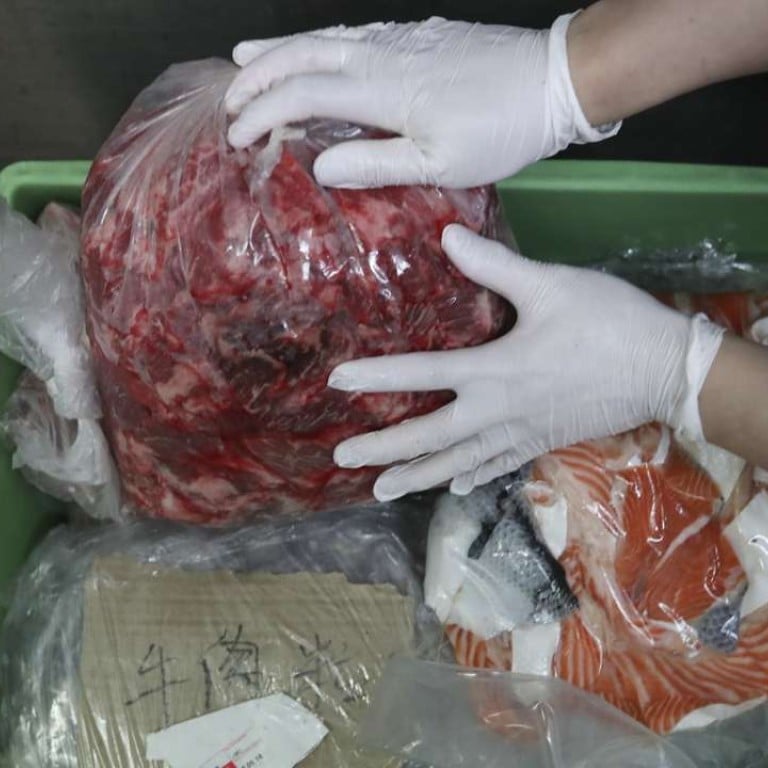
The Hong Kong chef who turns waste food into fine-dining feast, and others finding uses for unwanted food items
Waste-conscious restaurants, charities that distribute unsold and unused food - much is being done in Hong Kong to reduce the amount dumped in landfills, but changing the mindset of shoppers and diners is key
It’s not often you hear a seasoned Italian chef fret over the state of his pasta, but at a private dinner held in Wong Chuk Hang last month, Cosimo Taddei was slightly apologetic.
“We didn’t know what ingredients we were going to receive until they were collected yesterday, so we’ve tried to do what we can,” he says as he cuts into a softer-than-usual lasagne made with a bechamel using rice milk instead of cow’s milk.
The chef-owner of private kitchen Dine Art has worked in Italian restaurants in Hong Kong, including Grappa’s and the now-closed Domani. At this event he had to prepare a seven-course meal using waste and surplus food collected from the kitchens of the Grand Hyatt Hong Kong via food charity Foodlink Foundation.
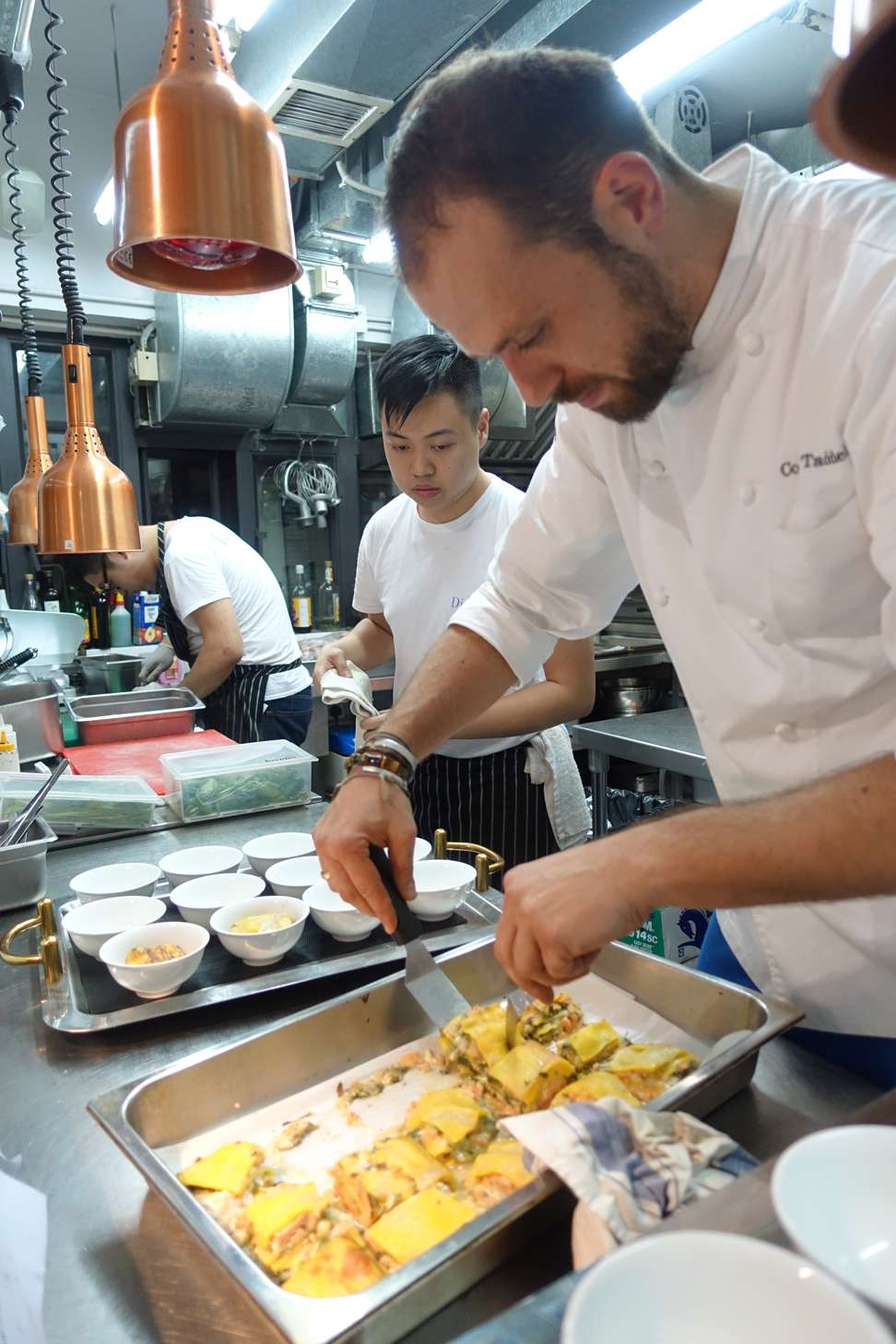
“These are ingredients that a few chefs in commercial kitchens would rather throw out, either because they have to be cooked for a long time to be palatable, or because they are not presentable enough to be served – even though they are perfectly edible,” he says.
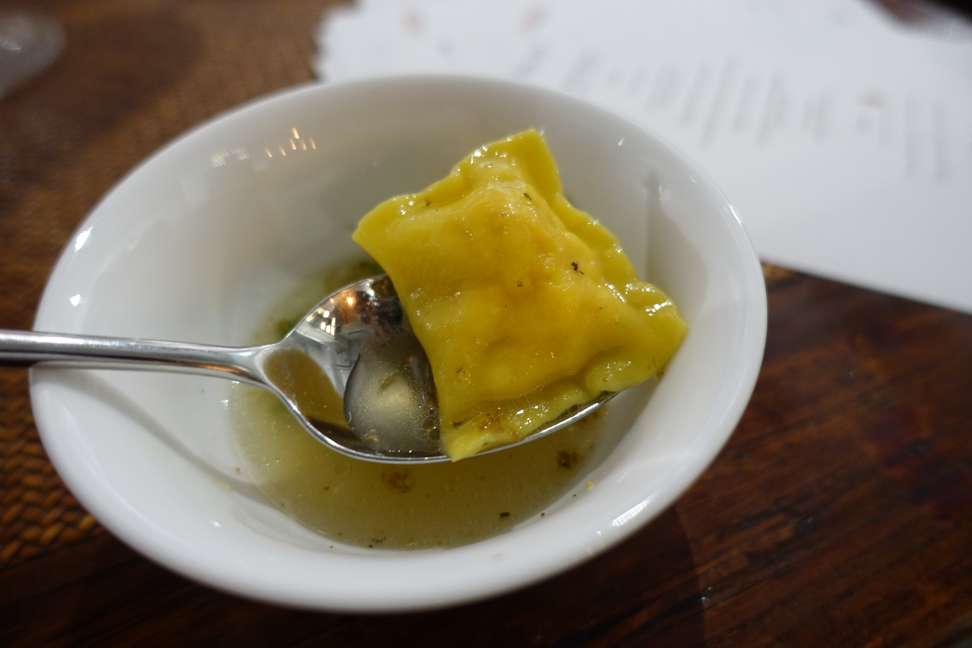
He led a similar initiative at the 2016 Olympic Games in Brazil and is now working with partners to open soup kitchens worldwide.
The Accademia’s Hong Kong dinner is just one of several new initiatives being organised around the city to keep food waste at the forefront of consumers’ minds. Food Savior, an app launched last month, aims to connect restaurants with unused fresh food portions to consumers looking for a discounted meal, while the Zero Waste Alliance of Restaurants in Hong Kong is a six month-old, industry-led movement to pilot best practices in food waste management in the city’s food and beverage industry.
According to government statistics, Hong Kong’s municipal solid waste has increased by more than 80 per cent in the last 30 years, far outpacing the population growth of 34 per cent in the same period.
An average of half a kilo of food is wasted per person per day in Hong Kong. A third of the total waste generated is food waste, which means 3,300 tonnes of food – the equivalent of seven fully loaded Boeing 747 aeroplanes – is tipped into local landfills daily.
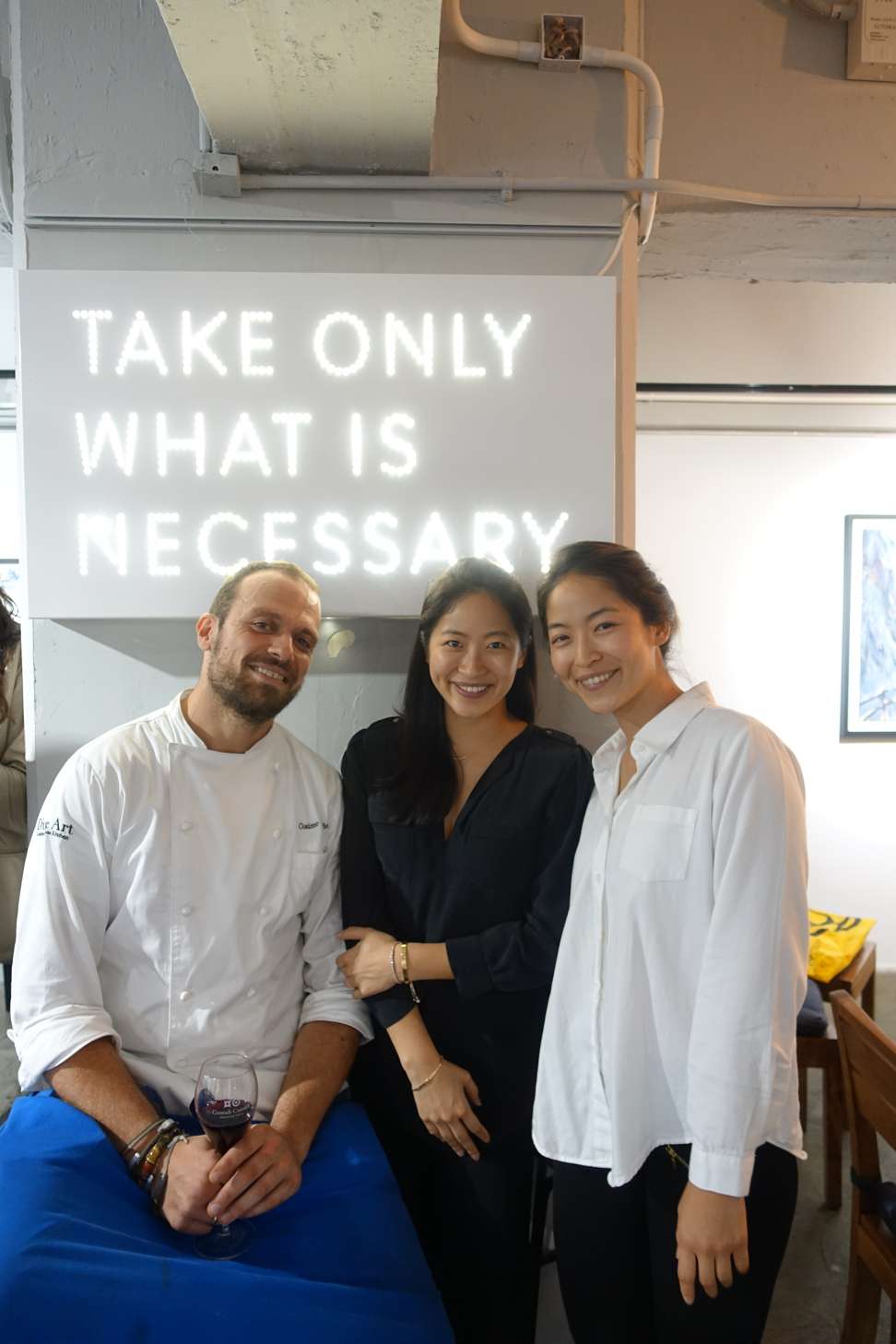
“In an Italian kitchen, nothing is wasted. Italy was never a wealthy society like Hong Kong, and we didn’t have the luxury of excess. It would never cross the mind of an Italian mother to throw away anything,” says Marco Avitabile, the Grand Hyatt’s regional vice-president of food and beverage and one of the guests at the Dine Art dinner.
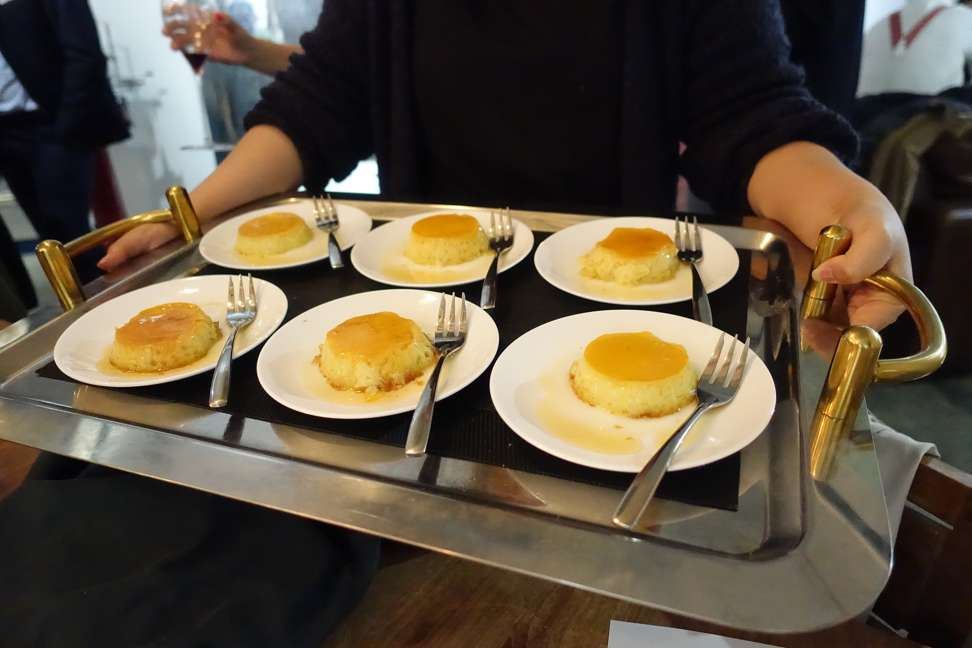
“It’s no longer about producing 80 dishes on the buffet line like we did in the old days,” Avitabile says. “We’re doing less but doing it better, fresher and healthier, with no wastage. And it doesn’t cost more operationally if you do it the correct way.”
In the six months since founding the Zero Waste Alliance of Restaurants, its nine member businesses, which operate some 20 restaurants in Hong Kong, including Home, Grassroots Pantry, Locofama and Teakha, have been meeting regularly to review progress, discuss the next steps and exchange ideas for minimising waste in their restaurants.
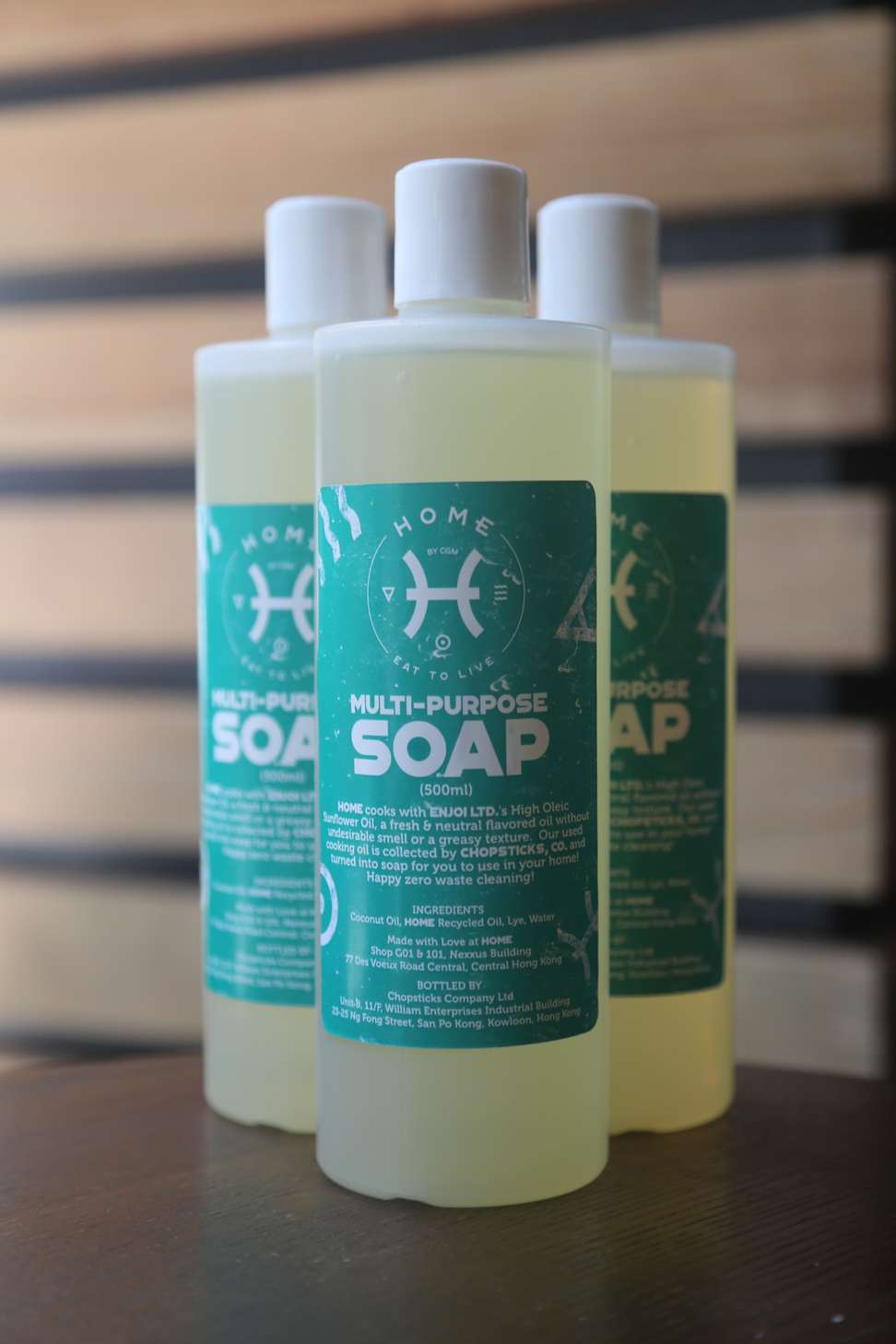
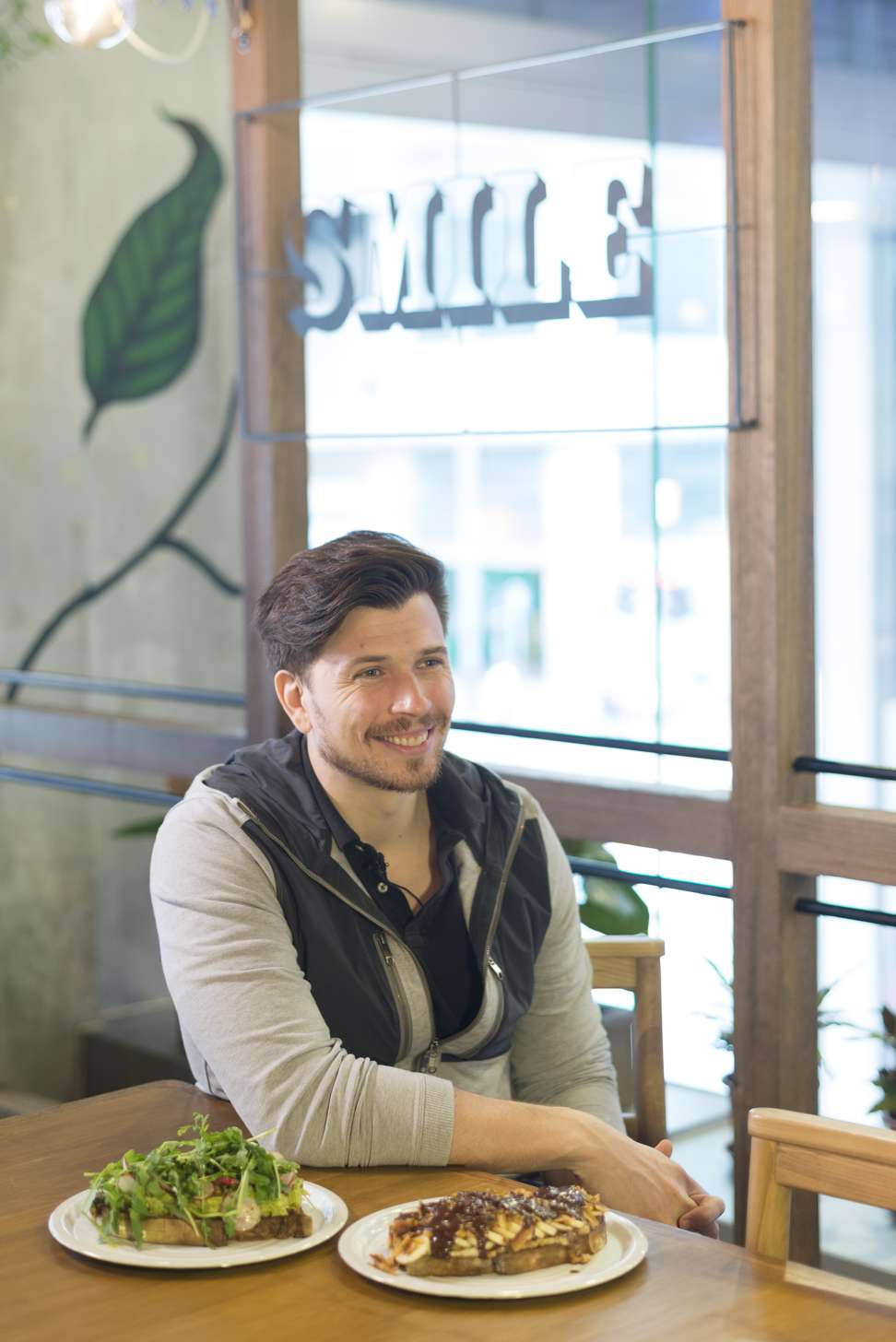
Government funding can help to accelerate ongoing corporate efforts significantly, says the Grand Hyatt’s Avitabile. For the global hotel chain’s Singapore property, for instance, the installation of a food-waste management system that every day converts all the hotel’s food waste into organic fertiliser was made possible by a S$250,000 (HK$1.3 million) subsidy from the Singapore government.
Meanwhile, Hong Kong charities continue to campaign for tax rebates and for a Good Samaritan law for food donors, which they believe would be an incentive for more corporate and individual do-gooders to step forward. In the US, the Bill Emerson Act – also known as the Good Samaritan law – exempts donors and recipient agencies acting in good faith from legal liability, says Foodlink’s Hwang, and similar legislation in Hong Kong would deter organisations from “dumping” inedible food on charities in order to dodge incoming food-waste charges.
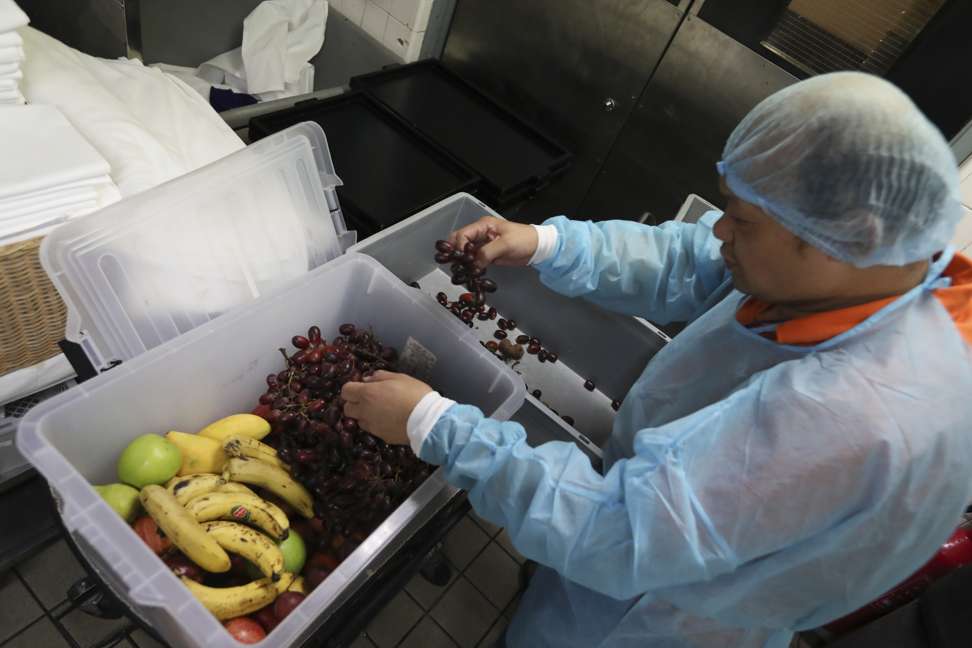
When I told my friend I was going to a dinner made from food waste, he told me to make sure I take a pill so I don’t get sick. Perhaps the term ‘food waste’ is incorrect
While economic incentives have their place in bottom-line-conscious Hong Kong, Friends of the Earth project manager Wendell Chan says a longer term solution is to change the mindset of consumers. “People don’t see food waste as a problem because food is seen as an abundant resource, and they are disconnected from how food is produced,” he says. “We need to reconnect people with where our food comes from and how it is made [using] education and outreach.”
Along with the Food Donation Alliance, which links food donors to 56 recipient organisations based on their needs, Friends of the Earth also runs the Waste No Food campaign, which dispatches volunteers to help collect unsold vegetables from stalls at wet markets at the end of the day and redistribute them among the elderly.
Avitabile believes that the hesitancy in embracing the movement of more conscientious consumption could be a simple matter of semantics.
“When I told my friend I was going to a dinner made from food waste, he told me to make sure I take a pill so I don’t get sick,” he recalls. “Perhaps the term ‘food waste’ is incorrect. By definition, waste is something you throw away. It has a much more appealing name in Italian: we call it ‘the cuisine of reusables’. But then again, if the name doesn’t have enough shock value, people are less likely to think and talk about the issue.”
Taddei at Dine Art is hopeful. “Chefs should be a bit more mindful, and customers should be a little less demanding of having only perfect-looking ingredients and bigger buffets, which lead to bigger wastage.
“One dinner won’t change the world, but we hope that it has at least made some people a bit more sensitive the next time they dine out.”
How you can help reduce food waste
Want to do your part to reduce food waste in Hong Kong? Here are three food charities where you can sign up as a volunteer:
Foodlink
Feeding HK
Friends of the Earth
